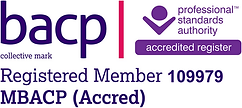Taking The First Step
Booking an Initial Counselling Session: Reaching out for therapy can feel like a mountain to climb. It’s not uncommon to hesitate or overthink before finally sending that email or making the call to book an initial counselling session. If you’re considering counselling, you’re not alone in finding the first step daunting. Many people take time to gather the courage to seek support.
As counsellors, we understand how vulnerable this moment can feel. That’s why we approach every inquiry with sensitivity and care. To ease some of the uncertainty, here’s an overview of what you can expect from an initial counselling session.
Your Initial Session
The initial counselling session is about connection, understanding, and clarity. Think of it as a gentle introduction rather than a deep exploration. Here’s what typically happens:
- Getting to Know You
- You’ll have the chance to share what’s brought you to counselling, whether it’s a specific challenge or a general sense of needing support.
- You can express any worries or questions about the process.
- Understanding the Process
- Your counsellor will explain how they work, what therapy might look like for you, and the kind of support they can offer.
- Practicalities like session frequency, duration, costs, and cancellation policies will also be discussed.
- Building Trust
- This session is an opportunity to see if you feel comfortable with the counsellor. Trust and connection are essential for effective therapy, so it’s okay to take your time deciding if it feels like the right fit.
- Setting Boundaries
- You’ll discuss confidentiality, its limits, and the importance of creating a safe and respectful therapeutic space.
What Happens Next?
If you decide to move forward, your counsellor will work with you to set goals and regularly review your progress. Counselling is a personal journey, and your sessions will move at a pace that feels right for you.
While opening up about painful emotions can be challenging, your counsellor is there to support you every step of the way. Whether you’re facing grief, anxiety, depression, trauma, or life’s daily stresses, the goal is to help you feel heard, understood, and empowered.
Common Concerns About Counselling
It’s natural to have concerns, especially if you’re new to therapy:
- “Is my problem serious enough for counselling?”
Absolutely. If something is bothering you, it’s worth seeking support. You don’t need to wait for a crisis to benefit from therapy. - “What if I don’t connect with my counsellor?”
The first session is as much about you assessing the counsellor as it is about them understanding your needs. If it doesn’t feel right, you can explore other options. - “What if I feel overwhelmed after a session?”
Therapy can stir up strong emotions, which is a natural part of the process. If this happens, talk to your counsellor about how you’re feeling. Planning something grounding or enjoyable after a session can also help.
Why Choose Counselling?
Counselling is a space to explore your feelings, experiences, and challenges without judgement. It’s a step toward prioritising your mental health, just as you would your physical health.
If you’re considering therapy, remember:
- Seeking help is a sign of strength, not weakness.
- It’s okay to take your time choosing the right counsellor.
- Small steps can lead to big changes.
Taking the leap to book that initial counselling session might feel like the hardest part, but it’s also the first step toward feeling better. Your mental health matters, and you don’t have to face life’s challenges alone.
Ready to take the first step?
Reach out for a personal recommendation or contact a counsellor to learn more about how they can help. You’re worth it.






